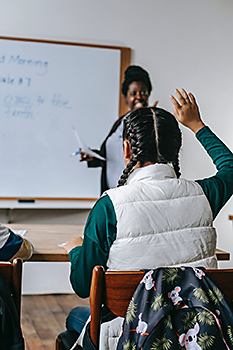
When I was a child in Fayetteville, all children in my neighborhood attended the only elementary school available, Haymount Elementary School on Hay Street.
Once we reached the 4th grade, we rode our bikes to school in a great herd. As far as I know, there were no other options.
When my own children reached school age, there were several other choices, mostly church-related schools and one academy, birthed in 1970 during the civil rights movement.
Since then, educational choice has exploded, and my head spins at the various options today’s parents are offered, many consider, and some take.
Homeschooling is up nationwide, 51 percent higher now than in school year 2017-2018, with some, but not all, that growth due to Covid. This is true in North Carolina as well.
Homeschooling numbers can be a bit sketchy, but estimates are that somewhere around 170,000 children are now homeschooled in the Tar Heel state. That is roughly 9 percent of our school-age children. If homeschoolers were an actual school district, it would be the largest one in North Carolina.
Homeschooling is not the only option available to parents.
They can also consider various charter schools, loosely regulated public schools, sometimes offering concentrations in various fields, such as STEM, the arts, foreign languages, and others. In North Carolina, these schools are increasingly operated by private companies paid by taxpayers with little public supervision.
There are also many private schools, often with religious bents, many of which operate on shoestring budgets and little to no curriculum oversight.
In addition, North Carolina and other states have begun offering what NC calls “opportunity scholarships,” taxpayer-funded tuition payments to private schools for students who have left public schools for whatever reason.
This smorgasbord of education choice is affecting traditional public schools, whose enrollment is down about 4 percent nationally, according to the Washington Post. Parents report taking their children out of public schools for all sorts of reasons, including bullying, not meeting their children’s particular needs, safety concerns, curricula with which they do not agree, and others.
Also affecting traditional public schools are the tax dollars that once flowed to them being diverted to charter and private schools.
All parents want the best for their children, and we all try to make the right choices for them. This mother of three with decades of schools, both public and private, under her belt has a few words of caution about school choice.
Free public education is not perfect, but it has served this nation well for nearly two centuries, and even with the various options now parents have, most American children are educated in traditional public schools and will continue to be for the foreseeable future.
It is in everyone’s best interest that children, our own and everyone else’s, receive high-quality basic educations. Siphoning tax dollars away from public education into private schools does not seem in the best interests of the overall common good.
When making choices for children’s schooling, be it in your kitchen, in a non-traditional charter, or in a private institution, make sure it is the highest quality you can find in your community.
Houses, cars, and most everything else can be replaced, but it is hard to undo, much less correct, an inadequate education. Education, whether it is excellent or poor, will follow and affect your child’s life after you and I are long gone.
In other words, caveat emptor—buyer beware.

 How to resolve AdBlock issue?
How to resolve AdBlock issue? 








